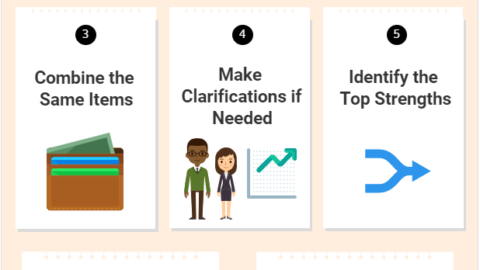International Project Management: Managing Success Across Borders
International project management has become a pivotal aspect of global business strategy as our world grows increasingly interconnected. So that, international project management involves the detailed planning, organization, and management of resources to bring about successful project outcomes in a global context during managing projects. This discipline opens the door to new markets, leverages international talent, and brings global solutions to local problems.
Table of Contents
Managing international projects is challenging. From overcoming language barriers, aligning different time zones, interpreting various regulatory landscapes, and understanding diverse cultures, global project management tests the mettle of even the most seasoned professionals.
Today, we will discuss the different issues in managing international projects and what you should be on the lookout for.
Cultural Understanding and Awareness
At its core, culture is the collective set of values, beliefs, norms, and practices shared by a group of people. It shapes our behaviors, influences our decisions, and defines our interactions. These cultural characteristics and traditions, which vary widely across the globe, carry profound implications for business and project management. They dictate not only societal norms but also business etiquette, corporate values, and professional expectations.
Cultural differences refer to the variety of cultural expressions and interpretations across different societies. This variation is present in almost every aspect of daily life, from food and fashion to communication and work. For example, while some cultures value punctuality and strict adherence to schedules, others may prioritize relationships and flexibility. Understanding these differences is crucial for managing international projects effectively.
The management of cultural differences is an integral part of international project management. Identifying these differences, especially in areas such as communication style, decision-making processes, and business etiquette, can significantly impact project outcomes.
Misunderstandings arising from these differences can cause conflict, delay project delivery, and even jeopardize the entire project.
Cultural neutrality approach in international projects
Cultural neutrality is the practice of managing a project without imposing one’s cultural norms or biases. This involves creating an environment where every culture is respected, appreciated, and considered. Culturally neutral management helps ensure that all team members feel included and valued, thus fostering better collaboration and mutual understanding.
Below are some examples of cultural differences between the US and other countries that are geographically close or culturally similar to it.
Cultural differences between the US and Canada
Despite geographical proximity and shared history, significant cultural differences exist between the US and Canada. For instance, Canadians are generally more reserved and value modesty, while Americans are known for their openness and individualism. Such cultural nuances must be factored in when managing projects involving these two nations.
Cultural differences between the US and UK
While sharing a common language, the US and the UK have distinct cultural identities. American culture emphasizes individual achievement and direct communication, while British culture values understatement, politeness, and a more indirect communication style.
Cultural differences between the US and Mexico
The US and Mexico, although neighbors, present stark cultural contrasts. Mexican culture strongly emphasizes family and relationships, often blending personal and professional interactions. In contrast, American culture clearly distinguishes between work and personal life.
International Project Management Techniques
While writing this article, we came across some tips and tricks you should know about. Below are some techniques that will help you in international project management.
Find balance in managing international projects
Managing international projects requires a delicate balancing act. It involves leading diverse teams, aligning time zones, and navigating cultural nuances. The skills needed for a global project manager include cultural competence, adaptability, strategic thinking, and powerful communication abilities.
Leading a successful international team
Leading an international team requires an understanding of cultural differences, an ability to bridge the cultural gap, and a strategic approach to managing diversity effectively. This involves fostering an inclusive environment, promoting open communication, and respecting cultural norms and traditions.
Managing an international organization
The management of an international organization involves understanding the internal dimension of diversity and managing cultural differences in project teams. It requires comparing and contrasting different management styles and adapting to the most effective practices.
Common challenges in managing projects for a global organization
Managing a global organization presents numerous challenges. The three facets most affected by cultural differences include communication, team collaboration, and decision-making processes. Common challenges in international business are below as follows:
1. Aligning different time zones:
Dealing with multiple time zones can create logistical difficulties in scheduling meetings, coordinating tasks, and ensuring timely communication among team members. It requires careful planning and effective use of technology to bridge the time gap and maintain seamless collaboration.
2. Managing cultural differences:
Cultural nuances can significantly impact communication styles, decision-making processes, and business practices during international project management. Understanding and respecting cultural differences is essential to build trust, establish effective relationships, and navigate potential conflicts that may arise due to cultural variations.
3. Navigating varying regulatory landscapes:
Operating in different countries means encountering diverse legal and regulatory frameworks. Compliance with local laws, regulations, and business practices is vital to avoid legal issues and maintain ethical business operations. Understanding and adapting to these variations is crucial for successful international business ventures.
4. Overcoming language barriers:
Language differences pose significant challenges in international business. Thus, effective communication is the cornerstone of successful collaboration, negotiation, and relationship building. Overcoming language barriers requires transforming content for your global audience by working with professionals in translation services and interpretation solutions, developing language skills, and utilizing technology tools to facilitate effective communication.
5. Adapting to different business practices:
Although business customs and practices vary greatly across cultures. Understanding and adapting to these practices, such as negotiation styles, decision-making processes, and business etiquette, is vital to building trust, fostering successful partnerships, and navigating the complexities of international business transactions.
6. Ensuring effective remote collaboration:
With the rise of remote work, international projects often involve dispersed teams working from different locations. Project managers must implement strategies and leverage technology to facilitate seamless communication, virtual collaboration, and effective project monitoring. This may include using project management software, video conferencing tools, and establishing clear communication channels.
These challenges require a proactive approach, cultural sensitivity, effective communication strategies, and a willingness to adapt to diverse environments. By addressing these challenges head-on, organizations can maximize their potential for success in the global marketplace.
Challenges of Global Integration Projects During International Project Management
Global integration projects are characterized by a unique set of challenges that require careful attention and strategic management:
Managing diverse stakeholders:
Global integration projects involve stakeholders from various backgrounds, including different organizations, departments, and cultures. Effectively managing these diverse stakeholders requires strong communication skills, active stakeholder engagement, and the ability to navigate conflicting interests and priorities to ensure project alignment and success.
Aligning different time zones:
Working across multiple time zones poses a significant challenge in global integration projects. Project teams may face difficulties in scheduling meetings, coordinating activities, and maintaining real-time collaboration. Project managers must devise strategies to accommodate time differences, such as establishing overlapping work hours or utilizing project management tools that facilitate asynchronous communication.
Bridging cultural gaps during international project management:
Cultural differences can give rise to communication barriers, misunderstandings, and varying work approaches in global integration projects. Project managers must foster an inclusive and culturally sensitive environment, promote open dialogue, and facilitate cross-cultural understanding among team members. By valuing diverse perspectives and leveraging cultural differences as strengths, project managers can bridge cultural gaps and promote effective collaboration.
Navigating legal and regulatory complexities:
Global integration projects often involve working in different countries with varying legal and regulatory frameworks. Project managers must ensure compliance with local laws, industry regulations, and contractual obligations. This requires staying up-to-date with relevant regulations, working closely with legal experts, and proactively addressing any compliance issues that may arise.
Integrating technological systems and processes:
Global integration projects often involve harmonizing different technological systems, processes, and infrastructure across multiple locations. Project managers must navigate the complexities of integrating diverse technologies, ensure interoperability, and manage potential technical challenges. Hence, this may involve conducting thorough assessments, developing robust implementation plans, and collaborating closely with IT teams and stakeholders.
Successfully managing these challenges in global integration projects requires strong leadership, effective communication, cultural intelligence, and adaptability. Hence, by addressing these challenges head-on, project managers can drive successful integration, foster collaboration, and achieve the desired outcomes in global integration projects.

Conclusion on International Project Management Methods
So, international project management is a complex yet rewarding field. It allows businesses to tap into new markets, leverage global talent, and deliver value to stakeholders worldwide. Success in this field hinges on a project manager’s ability to understand and navigate cultural differences, apply effective management techniques, and overcome the inherent challenges of managing international projects.

Victor Z Young is a Civil Engineer with 35 years of experience working alongside the executive team of various construction companies. Victor specializes in construction insurance, delay analysis, performance analysis and engineering. He holds a Doctor of Project Management from Northwestern University.











